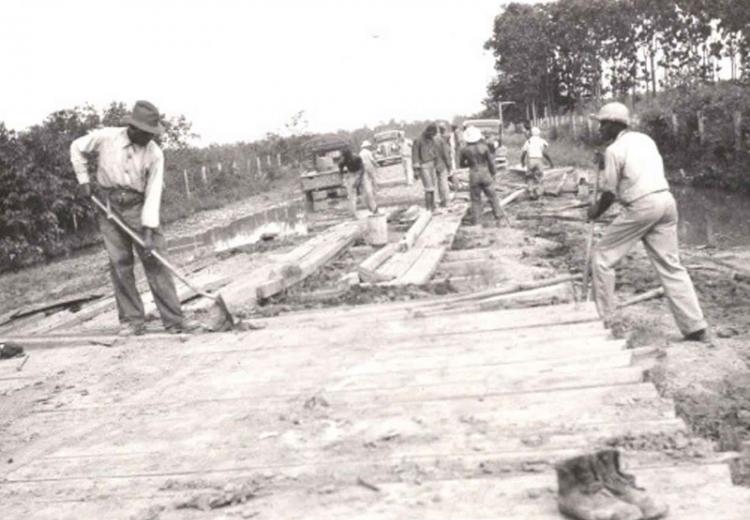Lesson 3: African-Americans and the New Deal's Civilian Conservation Corps

African American civilian conservation corps workers.
The New Deal marked an important shift in the American electoral landscape as significant numbers of African-Americans gave their votes to Franklin D. Roosevelt and the Democratic Party for the first time, establishing a political loyalty that has endured for roughly seventy years. New Deal recovery and relief programs rapidly became a central element in blacks' endeavors to survive the harsh economic realities of the Depression. One of these programs, the Civilian Conservation Corps, provided more than a quarter of a million young black men with jobs and was consequently another arena in which the black community waged the struggle for greater equality.
This lesson explores that struggle and its implications for the New Deal's impact on American society; it examines a series of documents written by New Deal officials, including the President that concerned black CCC workers. It also considers documents that present the CCC from the perspective of black participants and observers. Drawing on other background readings and the diversity of views that these documents reflect, students will analyze the impact of this New Deal program on race relations in America and assess the role played by the New Deal in changing them.
Guiding Questions
To what extent did the inclusion of African Americans in the CCC advance civil rights in the U.S.?
Learning Objectives
Explain the purpose of the CCC and the role of the federal government during the Great Depression.
Evaluate the short and long term effects participation in the CCC had on labor and civil rights of African Americans.
Evaluate the relationship between the New Deal and the long civil rights movement in U.S. history.
